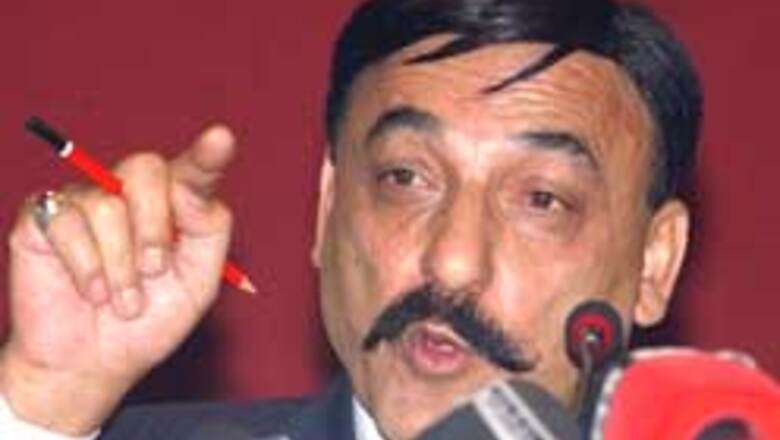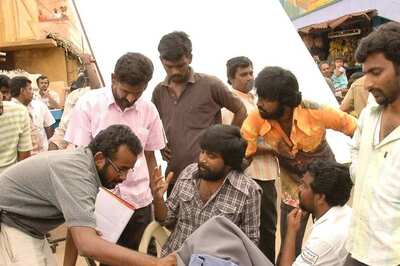
views
New Delhi: The All Parties Hurriyat Conference (APHC) is not the key representative of Kashmiri aspirations, said leaders from Pakistan's Gilgit-Baltistan region on Saturday.
Kashmiris had not selected the Hurriyat or any organisation as their sole representative, said 29 leaders, who recently attended a conference in Manesar, Haryana.
"Neither we, nor the Hurriyat are elected by the common people. So, how can we claim to be their representative," said Mirza Wajahat Hussain, president of the Gilgit-Baltistan Thinker Forum (GBTF)
The second round table between Prime Minister Manmohan Singh, the APHC and leaders of political outfits in Jammu and Kashmir will be held in Srinagar next week.
The 29 leaders demanded an end to their isolation, regional exclusion and the ongoing "ghettoisation" of Gilgit-Baltistan residents by the Pakistan armed forces and intelligence.
Recognising the growing interdependencies of the modern world, the leaders demanded that "The future of Jammu and Kashmir must be envisaged within the economic, social and political imperatives of integration, while recognising the primacy of and safeguarding the diverse and plural aspects of the identities of the people of Jammu and Kashmir."
They said that the aspirations of the people of Kashmir, Gilgit and Baltistan could not be met by a "mere political redistribution of power between regional or factional elites," but required the "establishment of clear mechanisms that ensure access to developmental opportunities and safeguarding of economic and natural resources for the benefit of the people of the region".
"The aspirations of the various constituent communities and peoples of Jammu and Kashmir, including Gilgit-Baltistan must be met within their traditional homelands," they said, adding that no community should be "forcibly evicted, displaced or artificially reduced to a minority through violence or experiments in demographic re-engineering."
Commenting on India's role in the past and in the present, Hussain said: "India is also responsible for our plight, because the focus has always remained on the issues of the valley (Kashmir Valley). It is also wrong on the part of the Pakistan Government that they give a red carpet welcome to these unelected `Hurriyat' leaders."
Nazir Gilani, an expatriate settled in London, and the Chairman of the International Kashmir Alliance (IKA), said that all Kashmiri leaders were realistically aware that there is no quick-fix solution to their myriad problems and issues.
"There cannot be a very quick turnkey solution to the problem. The voice of the Kashmiris should be heard, who are the main sufferers," Gilani said.
Shafqat Ali Inqalabi, the spokesman of the Balwaristan National Front (BNF), said that elections should be declared for the 25 seats that had been left vacant in the state Assembly in Indian Kashmir, and once this was announced, he said that he would be the first one to contest.
All the leaders were of the uanimous view that till a final resolution of the status of Jammu and Kashmir was not reached, an effort should be made to establish a "legislative, constitutional and judicial structure that guarantees the rights of the people of Gilgit-Baltistan". This, they said, "should be statutorily enshrined and enforced."
In their three-page final resolution, the Kashmiri and Gilgit leaders also called on the Indian Government to "provide openings in higher professional and technical education institutions to deserving students from Gilgit-Baltistan and Pakistan-Administered Kashmir," who at present were being denied this necessary facility.
They also called for greater and deeper levels of people-to-people contact, creation of special economic zones to boost trade links and levels of economic cooperation, non-discriminatory employment opportunities, the release of all political prisoners, relief measures, consultation on developmental projects and recognition for the "plural character of the Jammu and Kashmir Diaspora."



















Comments
0 comment